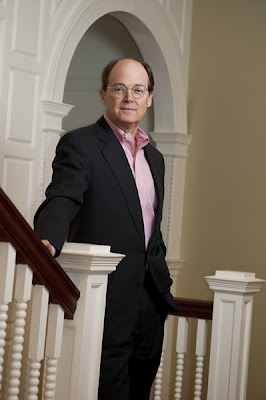Stage 2 Completed: I'm Registered for Class
With my formal acceptance into the Nashotah House Master of Sacred Theology program (STM) complete, I have now registered for this summer's classes. Unlike a larger seminary or university where class choices may be greater, I was somewhat limited in my selections. Nevertheless, the courses should prove to be both challenging and interesting. The first course I will be taking is entitled The New Perspective on Paul: A Critical Engagement with Recent Trends in Pauline Scholarship . This seemed appropriate especially given its current attention within Lutheran academic circles. For example, LOGIA: A Journal of Lutheran Theology devoted its 2010 Eastertide issue to "The New Perspective on Paul." The Concordia Journal issue for Spring 2009 also gave attention to this, especially Thomas Schreiner's article "An Old Perspective on the New Perspective." Doing a little searching I discovered that this subject has been discussed for some time now, as another ar



